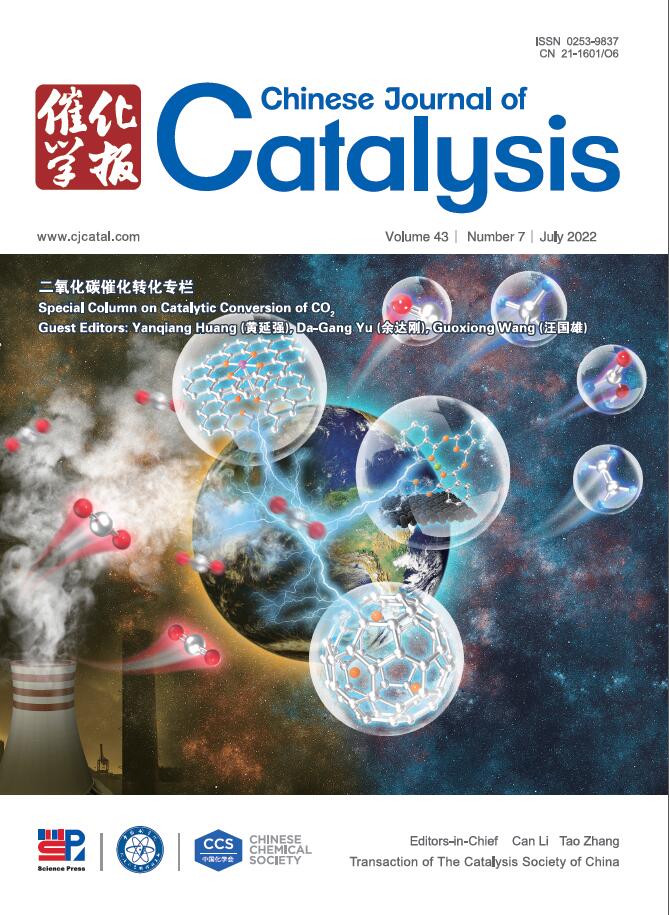Zeolites in the epoch of catalytic recycling plastic waste: Toward circular economy and sustainability
IF 15.7
1区 化学
Q1 CHEMISTRY, APPLIED
引用次数: 0
Abstract
Current ever-accumulating plastic waste can be considered a significant carbon resource for energy conversion and chemical production. The development of new approaches for upcycling plastic waste through chemical degradation may enable circularity and promote closed-loop recycling of carbon sources compared to traditional recycling methods. Zeolite, a widely used solid acid catalyst with high industrial potential in petroleum and biomass refining, has been extensively studied for its role in transforming plastics. In this review, we present an overview of zeolite-based catalytic systems for the chemical recycling of plastic waste and discuss how zeolites could potentially contribute to the future development of a circular economy. To provide a comprehensive understanding, we begin with a brief introduction to zeolites, analyzing their key features and exploring their opportunities as well as challenges in processing plastic waste. Subsequently, we delve into the chemistry of catalytic cracking and tandem catalysis using zeolite-based catalysts on plastics. Overall, we emphasize the importance of intelligent catalyst design and lower-energy pathways to incentivize plastic upcycling while alleviating the burden caused by waste plastics.
催化回收塑料废物时代的沸石:走向循环经济和可持续性
目前不断积累的塑料垃圾可以被认为是能源转换和化学生产的重要碳资源。与传统的回收方法相比,通过化学降解对塑料废物进行升级回收的新方法的开发可以实现循环并促进碳源的闭环回收。沸石是一种广泛使用的固体酸性催化剂,在石油和生物质精炼中具有很高的工业潜力,其在塑料转化中的作用得到了广泛的研究。在这篇综述中,我们介绍了基于沸石的塑料废物化学回收催化系统的概述,并讨论了沸石如何为循环经济的未来发展做出潜在贡献。为了提供一个全面的了解,我们首先简要介绍了沸石,分析了它们的主要特征,并探讨了它们在处理塑料废物中的机遇和挑战。随后,我们深入研究了在塑料上使用沸石基催化剂的催化裂化和串联催化的化学性质。总体而言,我们强调智能催化剂设计和低能耗途径的重要性,以激励塑料升级回收,同时减轻废塑料造成的负担。
本文章由计算机程序翻译,如有差异,请以英文原文为准。
求助全文
约1分钟内获得全文
求助全文
来源期刊

Chinese Journal of Catalysis
工程技术-工程:化工
CiteScore
25.80
自引率
10.30%
发文量
235
审稿时长
1.2 months
期刊介绍:
The journal covers a broad scope, encompassing new trends in catalysis for applications in energy production, environmental protection, and the preparation of materials, petroleum chemicals, and fine chemicals. It explores the scientific foundation for preparing and activating catalysts of commercial interest, emphasizing representative models.The focus includes spectroscopic methods for structural characterization, especially in situ techniques, as well as new theoretical methods with practical impact in catalysis and catalytic reactions.The journal delves into the relationship between homogeneous and heterogeneous catalysis and includes theoretical studies on the structure and reactivity of catalysts.Additionally, contributions on photocatalysis, biocatalysis, surface science, and catalysis-related chemical kinetics are welcomed.
 求助内容:
求助内容: 应助结果提醒方式:
应助结果提醒方式:


